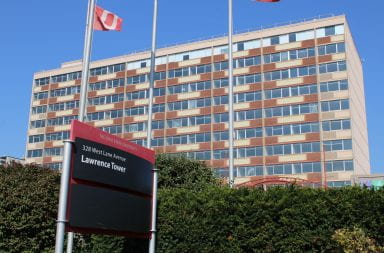Sometimes, I wonder why young children who couldn’t be more than 13 or 14 years old would want to join a gang. I see the boundaries so clearly – a life of crime compared to a life of opportunity. It’s almost as easy as seeing the difference between night and day.
“But if the line is so visible, why can’t these children see it?” I ask myself. I often ponder if these youngsters know the benefit of an education and receiving a degree. Just one choice can be the difference between a life behind bars and a life fulfilling all of an individual’s dreams.
Then, one afteroon, I came to a realization or at least part of the solution: These children saw success in hanging with gangs. They saw lots of Benjamin Franklins and Andrew Jacksons floating their way.
However, what made the dangerous, enticing gang pathway more enticing was the glory associated with it – or what they thought to be glory. After all, some of the most famous celebrities are gangsters, and these celebrities are even proud of their gang associations.
One prime example is Calvin “Snoop Dogg” Broadus, the infamous rapper. Broadus prides himself on being a Crip, one of the most notorious gangs in Los Angeles (In fact, there are branches of the Crip gang found in cities throughout the country, including Columbus).
The court commotion which occurred about eight years ago was actually the consequence of a gang shooting. Broadus’s bodyguard had shot an opposition gang member, and Broadus was caught in the middle of the trial. He even had to miss the MTV Awards because he was trying to avoid the clutches of the police. Later on, he turned himself in.
Even with all the criminal charges he was facing, Broadus still had his fans, and his fellow gang members loved the excitement. They probably thought it didn’t really matter if one of the consequences was prison, because the iron bars just meant more fame.
To make things worse, the lyrics Broadus sings are not only riddled with cuss words, but the words also send violent messages to his fans. Instead of spreading such hateful messages, why couldn’t Broadus try to send some life learning messages through his songs. Broadus isn’t the only culprit. There’s also Tracy Marrow (Ice-T), whose songs include “Street Killer” and “Where the S— Goes Down.”
It’s interesting these rappers think they’re becoming role models to the children. They need to remember the risks. Tupac Shakur may have risen to fame, but his murder came about because of gang involvement. Notorious BIG is another celebrated gang member/rapper whose death helps portray the threatening menacement of gang practice.
It’s true both Snoop Dogg and Ice-T are rich, and they probably could have whatever they want by making one phone call, but there is no point in praising gang life. The lyrics in their songs won’t stop children from wanting to join gangs. Instead, it will do the opposite. It will egg them on.
I’m not saying all rap music is awful, and no one should listen to the disgusting and dreadful music. There is still rap music I listen to, but I like the songs which are supposed to evoke meaningful lessons to every individual. I have to admit, I’m a big of fan of Eminem’s music, where I see him making a big effort in trying to put some meaning into his songs – they’re not all just about killing, drugs and sex.
Will Smith is another great rapper. While songs such as “Getting Jiggy with it” or “Men in Black,” are not very mind stimulating (or in other words, they are not the kind of songs that could change a person’s outlook on life) they are also not filled with abomination or loathing.
Children should not be encouraged to join gangs. Life is filled with so many opportunities. If they just took the chance, and bypassed the gang road, there could be so many windows which will open for them. It’s certainly better than having some stray bullet end a person’s life prematurely.
R.H. Aly is The Lantern campus editor and can be reached for comment at [email protected].


